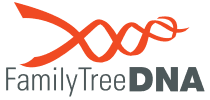What is BRCA Testing And How Accurate Is It?

Experts estimate that between 5% to 10% of breast cancers are hereditary. This leaves many people wanting to know if they possess a potentially life-threatening risk for breast or ovarian cancers.
Many forms of inherited breast cancer are related to two abnormal genes called BRCA 1 and BRCA 2 (the abbreviation BRCA is taken from BReast CAncer).
Opting for DNA testing is the best way to gain relevant information on any predisposition to diseases.
If you are a carrier of BRCA1 or BRCA2 genes with mutations or abnormalities, then that information could lead to crucial life-saving preventative measures.
Keep reading to learn more about BRCA testing.
What is the BRCA Gene?
Before you panic, everyone has BRCA1 and BRCA2 genes. In fact, the whole function of the BRCA genes is to work hard to repair any damage and keep breast cells healthy and growing normally. The problems begin, however, when either of these two genes possess abnormalities or harmful mutations.
As these genes are passed down between generations, their function remains abnormal. Thus, anyone with these abnormalities will be at greater risk of developing breast cancer.
That being said, if you have an abnormal BRCA1 or BRCA2 gene, it does not automatically mean that you will be diagnosed with breast cancer.
Increasingly, researchers are gaining more insights into contributing factors that may cause breast cancer when paired with an abnormal BRCA gene.
Insights show that additional mutations called single nucleotide polymorphisms, or SNPs, that lie within sections of chromosomes may be a contributing factor.
Women who possess these SNPs may be associated with a higher risk of developing breast cancer.
Who Is More Likely to Have the BRCA Gene?
Certain groups of people may be at a higher risk of having the gene. Thanks to developments in technology, researchers have been able to narrow this group of people down.
You may want to get tested in any case, but it might be an especially good idea if you belong to any of the following groups:
- If any of your biological relatives like your mother, grandmother, aunts or sisters, have developed breast cancer before the age of 50
- If any family members have been diagnosed with gland cancers like pancreatic, colon or thyroid cancer
- If you are of Ashkenazi Jewish ancestry
- If a male member of your family has been diagnosed with breast cancer
- If you are African American and 35 or younger with a breast cancer diagnosis
- If you have a family history of anyone having both breast and ovarian cancer in your family
Keep in mind these points refer to either side of your family- so both your patrilineal and matrilineal lines.
If you or anyone in your family meets these descriptions, it might be a good idea to pursue testing.
How Can I Get Tested?
It is wise to speak to your doctor about your cancer-related risk and to review your family history.
Your doctor may recommend speaking with a genetic counselor as well to understand what tests may be required.
DNA testing can reveal important genetic and health information not only for you but also for any children you may have.
This knowledge can be empowering and lead you and your family to take important preventative measures to safeguard everyone’s health.
So, how can you get tested to see if you have a predisposition to breast cancer? These DNA testing companies can help:
- Futura Genetics: Tests for 28 different diseases and conditions- including breast cancer, Alzheimer’s, and diabetes, and is compatible with data from 23andMe for a reduced cost
- 23 and Me: Includes BRCA genetic testing, ancestry timeline, connections with living relatives and more
- MyHeritage: Includes 36 personalized health reports, polygenic risk reports for heart disease, breast cancer, and more, 18 carrier status reports, and an ethnicity estimate
No matter what health information you are seeking from your DNA test, be sure to do your research.
Each DNA testing company offers something different, so understanding your goals before you enter your search can be crucial in finding the right test.






